Words MAXMILIAN WECHSLER
Portrait photographs Jaran Lakkanawat
Portrait photographs Jaran Lakkanawat
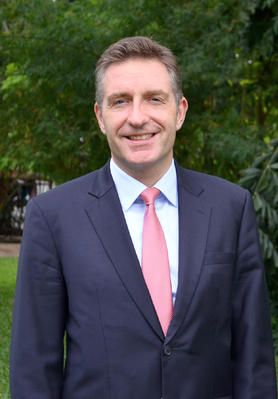
HIS Excellency Enno Drofenik, ambassador of Austria to Thailand, gave this interview at his beautiful residence inside the embassy compound in the appropriately named Soi Nantha-Mozart, off Sathorn in Bangkok. Also present was the ambassador’s charming wife, Juri Sekiguchi-Drofenik, who joined the conversation at times and later led a fascinating tour of their home.
Asked about the name of the Soi where the embassy is located, Mr Drofenik launched into a subject clearly dear to his heart: “Austria has given the world some of the best classical music composers, not only Wolfgang Amadeus Mozart…there’s also Gustav Mahler, Franz Schubert, Joseph Hayden and Johann Strauss. Ludwig van Beethoven was born in Germany but moved to Vienna in his late twenties and worked there until his demise. The Vienna Philharmonic and Vienna Symphony orchestras are world renowned, as is the Vienna Boys Choir.
Asked about the name of the Soi where the embassy is located, Mr Drofenik launched into a subject clearly dear to his heart: “Austria has given the world some of the best classical music composers, not only Wolfgang Amadeus Mozart…there’s also Gustav Mahler, Franz Schubert, Joseph Hayden and Johann Strauss. Ludwig van Beethoven was born in Germany but moved to Vienna in his late twenties and worked there until his demise. The Vienna Philharmonic and Vienna Symphony orchestras are world renowned, as is the Vienna Boys Choir.
“The New Year concerts of the Vienna Philharmonic are broadcast around the world on the morning of January 1. It is very difficult to obtain tickets for this concert because they are always sold out many months, even years, ahead. Another big event is the Music Festival in Salzburg held in August.”
Mr Drofenik added that music is also important to the current generation of Austrians, noting that Austrian-born Conchita Wurst won the Eurovision Song Contest held in May 2014 in Copenhagen.
The ambassador’s pride in his country’s cultural legacy is understandable. This relatively small nation in Central Europe has consistently produced giants of the arts. Besides composers, these have included countless masters in other traditions, sculptors and painters like Egon Schiele, Oscar Kokoschka and Gustav Klimt.
Moreover, Austria is full of splendid architectural wonders in the form of cathedrals, monuments and palaces, many of which are set against spectacularly beautiful mountains, rivers and lakes.
“Among the numerous magnificent palaces in Vienna is Schönbrunn (‘Beautiful Spring’), formerly the summer residence of the emperor, an unforgettable sight. Other architectural masterpieces in Vienna include Hofburg Palace, St Stephen’s Cathedral, and many others in cities throughout the country,” said Mr Drofenik, who at 43 is relatively young for an ambassador.
On neutral ground
The ambassador described Austria as a “neutral country,” explaining that the country was occupied after the Second World War for ten years by the allied forces, with the Soviet Union occupying the eastern part. “In 1955 – after negotiations with Moscow – Austria declared its status of permanent neutrality paving the way to become again an independent country. That means that it is written into our constitution that we will not take part in any military alliance, so for example we aren’t a part of NATO. The neutrality is still in force and it is a part of the identity of the Austrian people we do not want to change.
“Austria is a member of the European Union and the United Nations, however. Austria joined the EU in 1995. We had a referendum in which almost 66% of the voters voted in favor of joining. We are an enthusiastic member-state. Being a part of this big common market, especially with the inclusion of eastern European countries, has been good for us. Austria has traditionally acted as a gateway to Eastern Europe, and this has resulted in a lot of investment. Joining the EU has been very positive for us,” Mr Drofenik said.
Background
The Ambassador was born about 25 kilometers southwest of Vienna in Giesshübl in 1971. “It is a small village of about 2,000 people in the Vienna woods, mainly residential due to its proximity to the capital. I come from a family of teachers. Both of my parents were teachers, and so is my little sister, who is also a painter. I have two brothers. The younger one is also a teacher and the older is an electrical engineer, first teaching at the technical university Zurich and now doing research work for a big company in Switzerland.”
Asked why he chose a career with the foreign ministry, Mr Drofenik replied: “It was something I always wanted when I was growing up because I loved to travel and wanted to see new places, meet new people and do new things. Maybe it’s because I came from such a small place.
“I joined the foreign services in January 1997 and worked at the Department for Multilateral Development Cooperation as a desk officer. In 1999 I moved to the Austrian Mission to the United Nations in Vienna, where I was the First Secretary. My first posting abroad was in Tokyo, Japan, where I was also the First Secretary.
“In fact, it was there I met my wife, at a French National Day reception on July 14, 2006,” said Mr Drofenik. At that moment Mrs Sekiguchi-Drofenik, who had been sitting quietly next to him, began to laugh. In something of a departure from the usual pattern, she was invited to join the interview. The couple seemed very comfortable with the idea.
Mr Drofenik added that music is also important to the current generation of Austrians, noting that Austrian-born Conchita Wurst won the Eurovision Song Contest held in May 2014 in Copenhagen.
The ambassador’s pride in his country’s cultural legacy is understandable. This relatively small nation in Central Europe has consistently produced giants of the arts. Besides composers, these have included countless masters in other traditions, sculptors and painters like Egon Schiele, Oscar Kokoschka and Gustav Klimt.
Moreover, Austria is full of splendid architectural wonders in the form of cathedrals, monuments and palaces, many of which are set against spectacularly beautiful mountains, rivers and lakes.
“Among the numerous magnificent palaces in Vienna is Schönbrunn (‘Beautiful Spring’), formerly the summer residence of the emperor, an unforgettable sight. Other architectural masterpieces in Vienna include Hofburg Palace, St Stephen’s Cathedral, and many others in cities throughout the country,” said Mr Drofenik, who at 43 is relatively young for an ambassador.
On neutral ground
The ambassador described Austria as a “neutral country,” explaining that the country was occupied after the Second World War for ten years by the allied forces, with the Soviet Union occupying the eastern part. “In 1955 – after negotiations with Moscow – Austria declared its status of permanent neutrality paving the way to become again an independent country. That means that it is written into our constitution that we will not take part in any military alliance, so for example we aren’t a part of NATO. The neutrality is still in force and it is a part of the identity of the Austrian people we do not want to change.
“Austria is a member of the European Union and the United Nations, however. Austria joined the EU in 1995. We had a referendum in which almost 66% of the voters voted in favor of joining. We are an enthusiastic member-state. Being a part of this big common market, especially with the inclusion of eastern European countries, has been good for us. Austria has traditionally acted as a gateway to Eastern Europe, and this has resulted in a lot of investment. Joining the EU has been very positive for us,” Mr Drofenik said.
Background
The Ambassador was born about 25 kilometers southwest of Vienna in Giesshübl in 1971. “It is a small village of about 2,000 people in the Vienna woods, mainly residential due to its proximity to the capital. I come from a family of teachers. Both of my parents were teachers, and so is my little sister, who is also a painter. I have two brothers. The younger one is also a teacher and the older is an electrical engineer, first teaching at the technical university Zurich and now doing research work for a big company in Switzerland.”
Asked why he chose a career with the foreign ministry, Mr Drofenik replied: “It was something I always wanted when I was growing up because I loved to travel and wanted to see new places, meet new people and do new things. Maybe it’s because I came from such a small place.
“I joined the foreign services in January 1997 and worked at the Department for Multilateral Development Cooperation as a desk officer. In 1999 I moved to the Austrian Mission to the United Nations in Vienna, where I was the First Secretary. My first posting abroad was in Tokyo, Japan, where I was also the First Secretary.
“In fact, it was there I met my wife, at a French National Day reception on July 14, 2006,” said Mr Drofenik. At that moment Mrs Sekiguchi-Drofenik, who had been sitting quietly next to him, began to laugh. In something of a departure from the usual pattern, she was invited to join the interview. The couple seemed very comfortable with the idea.
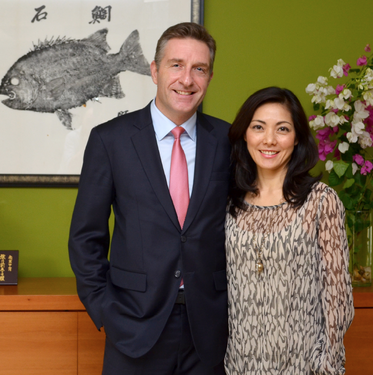
“From 2003-2006, I served at the United Nations in New York. I was in the Budget Committee negotiating with the representatives of 190 countries on UN expenditures. It wasn’t often an easy process. It was very intense, month after month. My daily routine was to go to the UN office in the morning and normally we held negotiations from 10am until very late, even close to midnight. There were a couple of occasions when we spent the whole night at the UN negotiating. It is a long process, a kind of shadow-boxing that takes a long time before people are ready to really bargain and reach an agreement. It was almost non-stop.”
About his life in New York, the ambassador said: “I lived in midtown, on 53rd Street and 2nd Avenue. It was in a nice area not too far away from the UN headquarters, about a 10-minute walk. Our office was quite close.
“New York is great if you like going out and meeting people. In that respect it is one of the best places in the world.
But I was working hard, so I did not see much of the city. Often I came home close to midnight and just slept until it was time to get up the next day. It was a very sober and very intense lifestyle. At that time my wife was working for the World Bank in Washington DC, so on the weekends I commuted there by car or she came to New York.
“When you work at the UN headquarters you meet many diplomats and other people. Several thousand people work there. You are together the whole day and often into the night for months, so you get very familiar with colleagues and you get close to them. It is actually like a family. I still consider a lot of former colleagues to be friends.
“My last position before coming to Thailand was in Vienna, where I was the Chief of Staff of the Secretary-General of the Austrian Federal Ministry for European and International Affairs. The Secretary-General is the highest ranking civil servant at the ministry.”
“I visited Thailand for the first time in 2000. I just traveled for two weeks around the country, going to Phuket, Ayutthaya, Kanchanaburi and other places. The place that most impressed me was actually Sukhothai. I rented a bicycle and pedaled around, through the rice fields and so on. It was beautiful. The second time I came here was as ambassador in August 2013.
“My term is four years, until 2017. I am also ambassador to Myanmar, Laos and Cambodia. In dealing with these three countries, I try to stay informed by reading newspapers, both the hard copies and online. I travel to Myanmar once a month and to Laos and Cambodia on a quarterly basis. It is not a perfect arrangement, but it is as good as can be managed.”
Besides his native German, Mr Drofenik is fluent in English, Spanish and French and can speak some Japanese. “When it comes to writing, Japanese seems to be more difficult than Thai, but I find both languages much more difficult to learn compared to Romanesque languages like French or Spanish,” he said.
Austro-Thai relations
“The relationship between our two countries is very friendly and my working relationship with the Thai foreign ministry is very good. They are very professional.
“Thailand and Austria established a consular relationship in 1865. Next year we will celebrate the 150th anniversary. The first Austrian diplomat was sent here in 1867. Thai diplomats began going to Austria in 1883.
“The first Austrian embassy was opened in Bangkok in 1912 in what is now the Mandarin Oriental Hotel. If you go to the old part of the hotel you will find a small sign saying it was the site of the Austrian embassy.
“The embassy compound where we are now was bought 40 years ago. It consists of the embassy and ambassador’s residence. We are now doing reconstruction. The old chancery building was pulled down and we are constructing a new one. It will be two storeys high and use environmentally friendly materials and methods. The building will be very energy efficient, a showcase of Austrian ‘green’ housing construction”
“The architect,” noted Mrs Sekuguchi-Drofenik, “is an Austrian and the workers are Thai.”
A total of 20 people work at the embassy compound and the Austrian embassy also maintains a trade office (in another location) with another 10 employees. Mr Drofenik said that about half of the staff was recruited locally and the rest came from Austria. “It is an active embassy with all the necessary components. There is cultural and political cooperation as well as a lot of business going on. With 100,000 Austrians coming here as tourists each year, we also devote a lot of effort to consular affairs.
“I am very satisfied with the performance of the Thai staff. Most of them have a university degree and they have to speak German if they work for the consular service because they have to deal with native Austrians.
“We don’t really know how many Austrians live in Thailand. We always ask them to register with the embassy but not all do. Now we have about 600 people registered which cannot be correct. My guess is that around 3,000 Austrians reside in Thailand.”
Turning to bilateral trade, he said: “Austria actually has a trade deficit with Thailand, meaning we import more than we export. Using last year’s figures, we imported goods valued at roughly €500 million (20.3 billion baht), while our exports amounted to about €280 million (11.4 billion baht). We mainly export machinery, green technology, medical equipment and chemicals. We import from Thailand textiles, cars, electronic parts and agricultural products like seafood and shrimp.
“Austrian companies have invested about €500 million here and they employ around 20,000 people. There are hundreds of small investors and big ones as well, for example in the rubber industry in the South. Another large investor is the famous crystal-maker Swarovski, which produces crystal products here.
“Last year about 110,000 Austrian tourists visited Thailand. About 37,000 Thai nationals visited Austria in 2013, which is a pretty decent number. They come mainly for our cultural heritage and natural beauty. They want to see the lakes and many go during winter to see the snow-covered mountains.
“It is certainly up to the preference of the individual tourist, but what I personally recommend is Vienna and Salzburg for the cultural heritage. We certainly have beautiful Alpine scenery. You can go hiking and do all sorts of adventure sports like rock climbing or kayaking. Of course skiing is also very big in Austria. But many people just go to the mountains to relax. Our lakes are very clean – you can drink from most of them. And you can find excellent food at a lot of mountain huts.
“I travel back home at least once a year,” said Mr Drofenik. “I must attend the ambassador’s conference which is held at the beginning of September. Last year the family went to Austria for Christmas and to do some skiing in the mountains, and I went home with my son in the summer. He likes to keep in touch with friends there.”
Mr Drofenik enjoys travelling around Thailand, and he often does so with his wife. “We went to Krabi and Phuket and to Khao Yai and Pattaya. I really like the area around Kanchanaburi as well.” His wife added that they had gone to Nan province on a very interesting weekend trip organized by the Ministry of Culture for the diplomatic community.
“One of my colleagues said to me when I came here, ‘If you don’t like it here then you have only yourself to blame’, and I think he was right. Maybe there are too many cars on the roads, but this comes with a city of 10 million people. It’s part of the package.
“My profession is very interesting, so I enjoy my work in Thailand. Personally, what I really love about the country is the weather. It is always warm. Even in the rainy season it rains a little bit but it is still pleasant. I like the beautiful vegetation and beaches.
About his life in New York, the ambassador said: “I lived in midtown, on 53rd Street and 2nd Avenue. It was in a nice area not too far away from the UN headquarters, about a 10-minute walk. Our office was quite close.
“New York is great if you like going out and meeting people. In that respect it is one of the best places in the world.
But I was working hard, so I did not see much of the city. Often I came home close to midnight and just slept until it was time to get up the next day. It was a very sober and very intense lifestyle. At that time my wife was working for the World Bank in Washington DC, so on the weekends I commuted there by car or she came to New York.
“When you work at the UN headquarters you meet many diplomats and other people. Several thousand people work there. You are together the whole day and often into the night for months, so you get very familiar with colleagues and you get close to them. It is actually like a family. I still consider a lot of former colleagues to be friends.
“My last position before coming to Thailand was in Vienna, where I was the Chief of Staff of the Secretary-General of the Austrian Federal Ministry for European and International Affairs. The Secretary-General is the highest ranking civil servant at the ministry.”
“I visited Thailand for the first time in 2000. I just traveled for two weeks around the country, going to Phuket, Ayutthaya, Kanchanaburi and other places. The place that most impressed me was actually Sukhothai. I rented a bicycle and pedaled around, through the rice fields and so on. It was beautiful. The second time I came here was as ambassador in August 2013.
“My term is four years, until 2017. I am also ambassador to Myanmar, Laos and Cambodia. In dealing with these three countries, I try to stay informed by reading newspapers, both the hard copies and online. I travel to Myanmar once a month and to Laos and Cambodia on a quarterly basis. It is not a perfect arrangement, but it is as good as can be managed.”
Besides his native German, Mr Drofenik is fluent in English, Spanish and French and can speak some Japanese. “When it comes to writing, Japanese seems to be more difficult than Thai, but I find both languages much more difficult to learn compared to Romanesque languages like French or Spanish,” he said.
Austro-Thai relations
“The relationship between our two countries is very friendly and my working relationship with the Thai foreign ministry is very good. They are very professional.
“Thailand and Austria established a consular relationship in 1865. Next year we will celebrate the 150th anniversary. The first Austrian diplomat was sent here in 1867. Thai diplomats began going to Austria in 1883.
“The first Austrian embassy was opened in Bangkok in 1912 in what is now the Mandarin Oriental Hotel. If you go to the old part of the hotel you will find a small sign saying it was the site of the Austrian embassy.
“The embassy compound where we are now was bought 40 years ago. It consists of the embassy and ambassador’s residence. We are now doing reconstruction. The old chancery building was pulled down and we are constructing a new one. It will be two storeys high and use environmentally friendly materials and methods. The building will be very energy efficient, a showcase of Austrian ‘green’ housing construction”
“The architect,” noted Mrs Sekuguchi-Drofenik, “is an Austrian and the workers are Thai.”
A total of 20 people work at the embassy compound and the Austrian embassy also maintains a trade office (in another location) with another 10 employees. Mr Drofenik said that about half of the staff was recruited locally and the rest came from Austria. “It is an active embassy with all the necessary components. There is cultural and political cooperation as well as a lot of business going on. With 100,000 Austrians coming here as tourists each year, we also devote a lot of effort to consular affairs.
“I am very satisfied with the performance of the Thai staff. Most of them have a university degree and they have to speak German if they work for the consular service because they have to deal with native Austrians.
“We don’t really know how many Austrians live in Thailand. We always ask them to register with the embassy but not all do. Now we have about 600 people registered which cannot be correct. My guess is that around 3,000 Austrians reside in Thailand.”
Turning to bilateral trade, he said: “Austria actually has a trade deficit with Thailand, meaning we import more than we export. Using last year’s figures, we imported goods valued at roughly €500 million (20.3 billion baht), while our exports amounted to about €280 million (11.4 billion baht). We mainly export machinery, green technology, medical equipment and chemicals. We import from Thailand textiles, cars, electronic parts and agricultural products like seafood and shrimp.
“Austrian companies have invested about €500 million here and they employ around 20,000 people. There are hundreds of small investors and big ones as well, for example in the rubber industry in the South. Another large investor is the famous crystal-maker Swarovski, which produces crystal products here.
“Last year about 110,000 Austrian tourists visited Thailand. About 37,000 Thai nationals visited Austria in 2013, which is a pretty decent number. They come mainly for our cultural heritage and natural beauty. They want to see the lakes and many go during winter to see the snow-covered mountains.
“It is certainly up to the preference of the individual tourist, but what I personally recommend is Vienna and Salzburg for the cultural heritage. We certainly have beautiful Alpine scenery. You can go hiking and do all sorts of adventure sports like rock climbing or kayaking. Of course skiing is also very big in Austria. But many people just go to the mountains to relax. Our lakes are very clean – you can drink from most of them. And you can find excellent food at a lot of mountain huts.
“I travel back home at least once a year,” said Mr Drofenik. “I must attend the ambassador’s conference which is held at the beginning of September. Last year the family went to Austria for Christmas and to do some skiing in the mountains, and I went home with my son in the summer. He likes to keep in touch with friends there.”
Mr Drofenik enjoys travelling around Thailand, and he often does so with his wife. “We went to Krabi and Phuket and to Khao Yai and Pattaya. I really like the area around Kanchanaburi as well.” His wife added that they had gone to Nan province on a very interesting weekend trip organized by the Ministry of Culture for the diplomatic community.
“One of my colleagues said to me when I came here, ‘If you don’t like it here then you have only yourself to blame’, and I think he was right. Maybe there are too many cars on the roads, but this comes with a city of 10 million people. It’s part of the package.
“My profession is very interesting, so I enjoy my work in Thailand. Personally, what I really love about the country is the weather. It is always warm. Even in the rainy season it rains a little bit but it is still pleasant. I like the beautiful vegetation and beaches.
“My favourite thing to do in Bangkok is to sit on the terrace and have coffee and read The Economist or The BigChilli and look at the garden. Then I am happy,” said Mr Drofenik.
“We have a number of different animals in the embassy garden, including three peacocks – two males and one female. One male peacock originally belonged to the Danish embassy, but now spends most of the time with his two friends at our compound. They are very big birds. Normally they are around but I don’t see them now. They are kind of free animals who sometimes fly over to the neighboring German or Danish embassy compounds, and sometimes to other places in the vicinity. Now is mating season which means the males have big beautiful feathers. They sleep on the tree tops.”
The peacocks venture close to the residence and sometimes even try to get inside. “We feed them. They eat everything – pasta, cat food, cereal, cake and meat. The secret is that we feed them Sachertorte, the famous Austrian chocolate cake,” said Mr Drofenik.
“We have all kinds of wildlife here. Yesterday I went to the reception hosted by the German ambassador, my neighbour. I just go from one garden to the other, with a small gate in-between. Anyway, on the way back from the reception it was nighttime. When I tried to lock the gate, I saw something on my left. It was a pit viper and it was looking at me! It was green with a red tail and a triangle-shaped face, a very poisonous snake. We also have monitor lizards, but they are not so large.”
Free time
“When I have the chance I like to spend time with my wife and son. He is seven years old and goes to school here. Otherwise, I always like to do new things. For example, when I came here I started to play golf and learn to play guitar and speak Thai. This keeps me busy and happy in my free time.
“I also like sports. I have a black belt in full contact karate. I have been doing this sport for over 20 years. I am now doing some Thai boxing, working out daily, one hour in the morning. I have a Thai trainer who comes here once a week who is a former Lumpini champion. We do some sparring as well.”
Mr Drofenik then announced plans for what may be the cultural event of 2015 in Bangkok, a Viennese Ball organized by the Austrian embassy. “In Vienna, balls usually take place in January and February. It is very social and very typically Viennese and people dress very nicely. My wife loves ballroom dancing and she asked me to organize a Viennese Ball in Bangkok. It will be on May 8, 2015 at the Siam Kempinski Hotel. We will fly in some performers and musicians from Austria together with dancing instructors who can teach the guests beforehand,” Mr Drofenik.
His wife added: “The planned Viennese Ball in Bangkok is for charity and it is linked with other interesting events.
Firstly, it coincides with the 150th anniversary of Thai-Austrian consular relations. Secondly, Her Royal Highness Princess Bajrakitiyabha Mahidol, eldest child of His Royal Highness Crown Prince Maha Vajiralongkorn, has a trust fund devoted to assisting women’s issues and we want to donate revenues from the ball to her project.
The ball will take place in the evening and maybe we will also arrange an Austrian food festival. We will offer dance classes beforehand.”
“We have a number of different animals in the embassy garden, including three peacocks – two males and one female. One male peacock originally belonged to the Danish embassy, but now spends most of the time with his two friends at our compound. They are very big birds. Normally they are around but I don’t see them now. They are kind of free animals who sometimes fly over to the neighboring German or Danish embassy compounds, and sometimes to other places in the vicinity. Now is mating season which means the males have big beautiful feathers. They sleep on the tree tops.”
The peacocks venture close to the residence and sometimes even try to get inside. “We feed them. They eat everything – pasta, cat food, cereal, cake and meat. The secret is that we feed them Sachertorte, the famous Austrian chocolate cake,” said Mr Drofenik.
“We have all kinds of wildlife here. Yesterday I went to the reception hosted by the German ambassador, my neighbour. I just go from one garden to the other, with a small gate in-between. Anyway, on the way back from the reception it was nighttime. When I tried to lock the gate, I saw something on my left. It was a pit viper and it was looking at me! It was green with a red tail and a triangle-shaped face, a very poisonous snake. We also have monitor lizards, but they are not so large.”
Free time
“When I have the chance I like to spend time with my wife and son. He is seven years old and goes to school here. Otherwise, I always like to do new things. For example, when I came here I started to play golf and learn to play guitar and speak Thai. This keeps me busy and happy in my free time.
“I also like sports. I have a black belt in full contact karate. I have been doing this sport for over 20 years. I am now doing some Thai boxing, working out daily, one hour in the morning. I have a Thai trainer who comes here once a week who is a former Lumpini champion. We do some sparring as well.”
Mr Drofenik then announced plans for what may be the cultural event of 2015 in Bangkok, a Viennese Ball organized by the Austrian embassy. “In Vienna, balls usually take place in January and February. It is very social and very typically Viennese and people dress very nicely. My wife loves ballroom dancing and she asked me to organize a Viennese Ball in Bangkok. It will be on May 8, 2015 at the Siam Kempinski Hotel. We will fly in some performers and musicians from Austria together with dancing instructors who can teach the guests beforehand,” Mr Drofenik.
His wife added: “The planned Viennese Ball in Bangkok is for charity and it is linked with other interesting events.
Firstly, it coincides with the 150th anniversary of Thai-Austrian consular relations. Secondly, Her Royal Highness Princess Bajrakitiyabha Mahidol, eldest child of His Royal Highness Crown Prince Maha Vajiralongkorn, has a trust fund devoted to assisting women’s issues and we want to donate revenues from the ball to her project.
The ball will take place in the evening and maybe we will also arrange an Austrian food festival. We will offer dance classes beforehand.”
The Ambassador’s wife
While Mr Drofenik was occupied in a photo shoot with The BigChilli’s photographer, his wife spoke about her life in Thailand
“For me every day is a learning experience because this is my husband’s first ambassadorial posting. It is a different role and it keeps me very busy being the mother of a seven-year-old son and the wife of an ambassador. I’m busy every day attending various social and charitable events. I am also learning German and working, so I have more hats to wear. This year I will be the president of the Ambassadors’ Wives Club, which includes spouses of ambassadors from 30 countries.”
Mrs Sekiguchi-Drofenik said her husband especially likes Italian and Japanese food, the latter a taste acquired even before they were married. “For good Japanese food you need fresh ingredients. It is very simple but it must be fresh. I cook Japanese food frequently here because it is very easy to buy all the ingredients. This wasn’t the case when we were in Vienna. After the Fukushima nuclear accident in March 2011, there was almost nothing on the shelves in Vienna as imports from Japan were banned. I couldn’t buy anything. In Bangkok you can buy anything you need, and there are even Japanese supermarkets here.”
She then showed me around the ambassador’s residence, which incorporates a Japanese motif in the interior design. There are Samurai swords and armor and Japanese cutlery and furniture. There were also several nicely framed prints of fish caught by her father. “After my father caught the fish he placed it on the paper and used calligraphy ink to make a print, which he then framed. It is a fish-print,” she said.
Moving out on to the terrace, a favourite place for both Mrs Sekiguchi-Drofenik and her husband, she said: “You can sit outside the house on comfortable chairs and wait for the peacocks and other exotic animals. It is heaven for the animals because they have a huge space and plenty of good food supplied by the three embassies.”
Asked if she would like her husband to be ambassador to Japan one day, she said with a smile: “When this happens my husband will have more gray hairs. Austrian ambassadors are assigned to different categories of countries depending on their seniority. The highest category is Brussels, as the headquarters of the EU. In the second tier are G8 countries, which includes Japan, and then there are midsize countries like Thailand. It is unlikely that my husband could be posted in Brussels because he doesn’t have the relevant working experience in EU affairs,” she added.
Since Mr Drofenik has many years to go before he reaches 65, the retirement age for public servants in Austria, there is a good chance he will be ambassador to Japan some day.
While Mr Drofenik was occupied in a photo shoot with The BigChilli’s photographer, his wife spoke about her life in Thailand
“For me every day is a learning experience because this is my husband’s first ambassadorial posting. It is a different role and it keeps me very busy being the mother of a seven-year-old son and the wife of an ambassador. I’m busy every day attending various social and charitable events. I am also learning German and working, so I have more hats to wear. This year I will be the president of the Ambassadors’ Wives Club, which includes spouses of ambassadors from 30 countries.”
Mrs Sekiguchi-Drofenik said her husband especially likes Italian and Japanese food, the latter a taste acquired even before they were married. “For good Japanese food you need fresh ingredients. It is very simple but it must be fresh. I cook Japanese food frequently here because it is very easy to buy all the ingredients. This wasn’t the case when we were in Vienna. After the Fukushima nuclear accident in March 2011, there was almost nothing on the shelves in Vienna as imports from Japan were banned. I couldn’t buy anything. In Bangkok you can buy anything you need, and there are even Japanese supermarkets here.”
She then showed me around the ambassador’s residence, which incorporates a Japanese motif in the interior design. There are Samurai swords and armor and Japanese cutlery and furniture. There were also several nicely framed prints of fish caught by her father. “After my father caught the fish he placed it on the paper and used calligraphy ink to make a print, which he then framed. It is a fish-print,” she said.
Moving out on to the terrace, a favourite place for both Mrs Sekiguchi-Drofenik and her husband, she said: “You can sit outside the house on comfortable chairs and wait for the peacocks and other exotic animals. It is heaven for the animals because they have a huge space and plenty of good food supplied by the three embassies.”
Asked if she would like her husband to be ambassador to Japan one day, she said with a smile: “When this happens my husband will have more gray hairs. Austrian ambassadors are assigned to different categories of countries depending on their seniority. The highest category is Brussels, as the headquarters of the EU. In the second tier are G8 countries, which includes Japan, and then there are midsize countries like Thailand. It is unlikely that my husband could be posted in Brussels because he doesn’t have the relevant working experience in EU affairs,” she added.
Since Mr Drofenik has many years to go before he reaches 65, the retirement age for public servants in Austria, there is a good chance he will be ambassador to Japan some day.
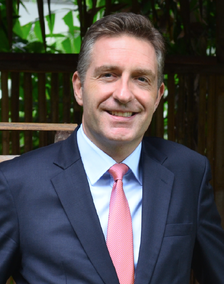
Curriculum Vitae of HE Enno Drofenik
• Born in 1971
• Married to Juri Sekiguchi-Drofenik
• They have one son
• 1989-1993: Studied at the University of Vienna, Austria; majoring in Law and Jurisprudence
• 1993: University of Vienna, Austria; Master of Law
• 1994-1995: Legal Clerkship
• 1997:Austrian Federal Ministry for European and International Affairs; entered the Austrian Diplomatic Service
• 1997-1999: Department for Multilateral Development Cooperation
• 1999-2000: Austrian Mission to the United Nations in Vienna, First Secretary
• 2000-2003: Austrian embassy in Tokyo, First Secretary
• 2003-2006: Austrian mission to the United Nations in New York, Counselor
• 2005: Chairman of the United Nations Committee on Conferences
• 2006-2010: Office of the Secretary-General for Foreign Affairs, Austrian Ministry for European and International Affairs
• 2009-2010: Member of the Supervisory Board of the Austrian Development Agency
• 2010 – 2013: Director of the Office of the Secretary-General for Foreign Affairs, Austrian Federal Ministry for European and International Affairs
• August 2013 to present: Ambassador to Thailand, Myanmar, Laos and Cambodia
• Born in 1971
• Married to Juri Sekiguchi-Drofenik
• They have one son
• 1989-1993: Studied at the University of Vienna, Austria; majoring in Law and Jurisprudence
• 1993: University of Vienna, Austria; Master of Law
• 1994-1995: Legal Clerkship
• 1997:Austrian Federal Ministry for European and International Affairs; entered the Austrian Diplomatic Service
• 1997-1999: Department for Multilateral Development Cooperation
• 1999-2000: Austrian Mission to the United Nations in Vienna, First Secretary
• 2000-2003: Austrian embassy in Tokyo, First Secretary
• 2003-2006: Austrian mission to the United Nations in New York, Counselor
• 2005: Chairman of the United Nations Committee on Conferences
• 2006-2010: Office of the Secretary-General for Foreign Affairs, Austrian Ministry for European and International Affairs
• 2009-2010: Member of the Supervisory Board of the Austrian Development Agency
• 2010 – 2013: Director of the Office of the Secretary-General for Foreign Affairs, Austrian Federal Ministry for European and International Affairs
• August 2013 to present: Ambassador to Thailand, Myanmar, Laos and Cambodia

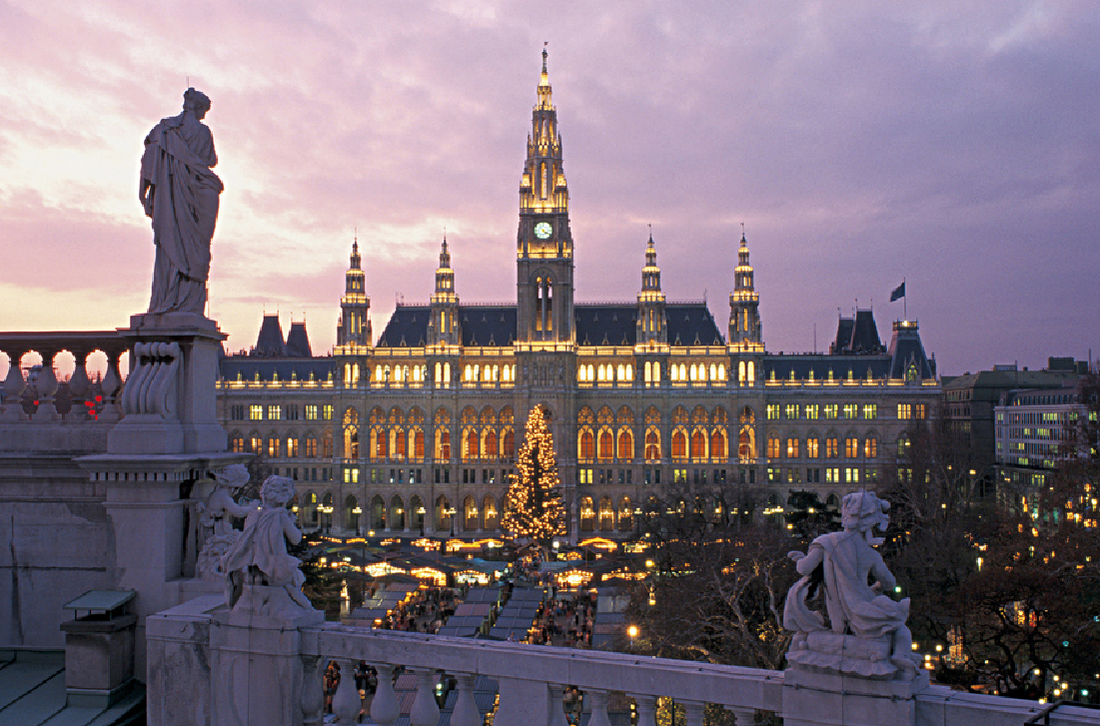
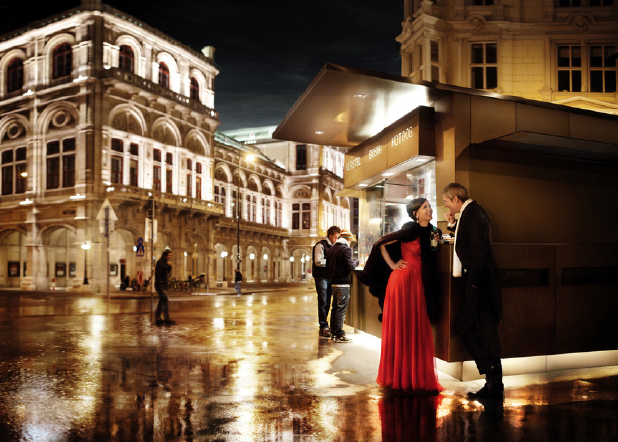
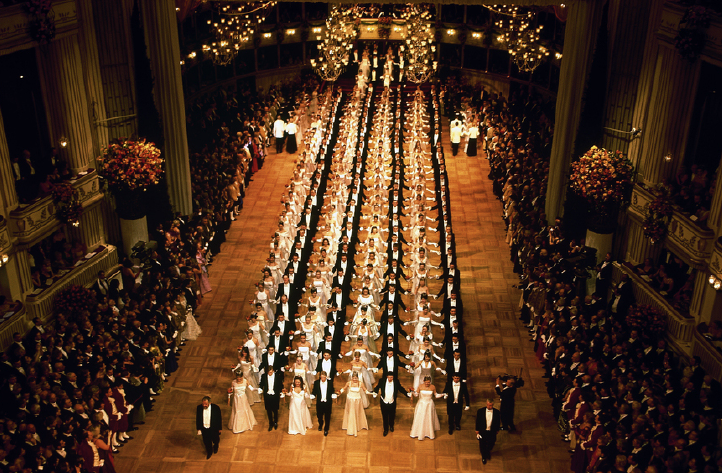
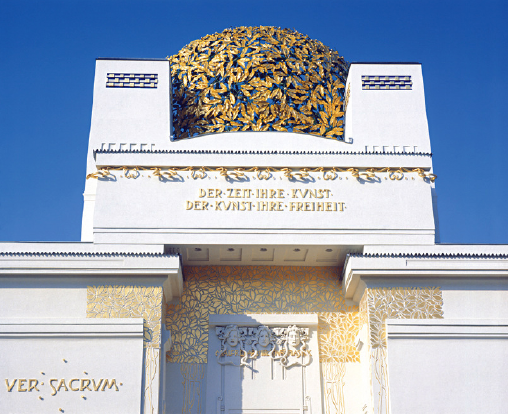
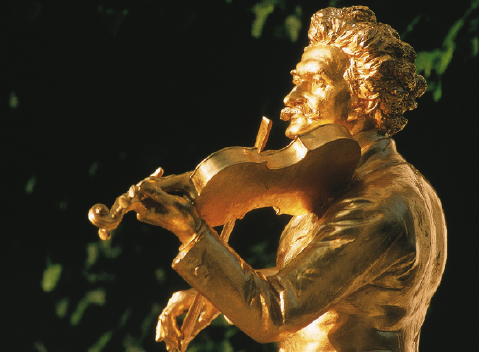
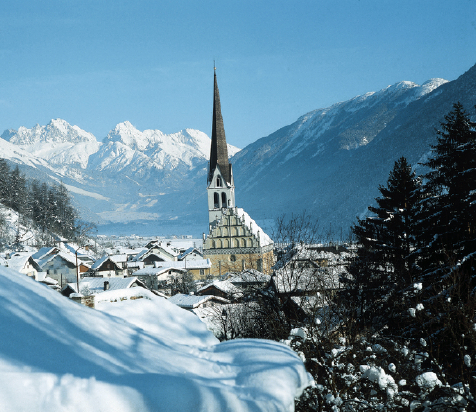
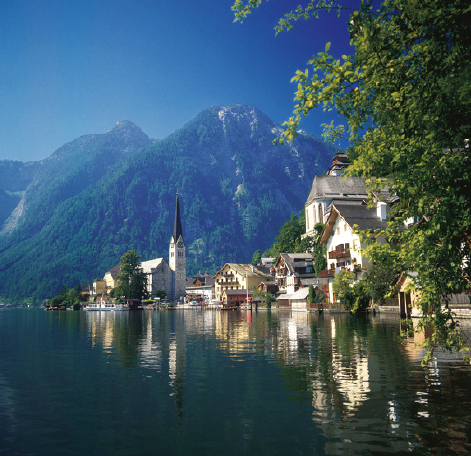
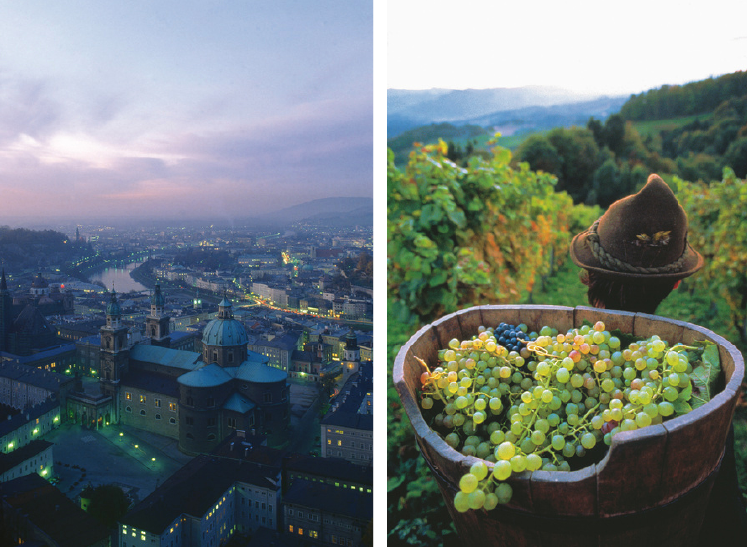
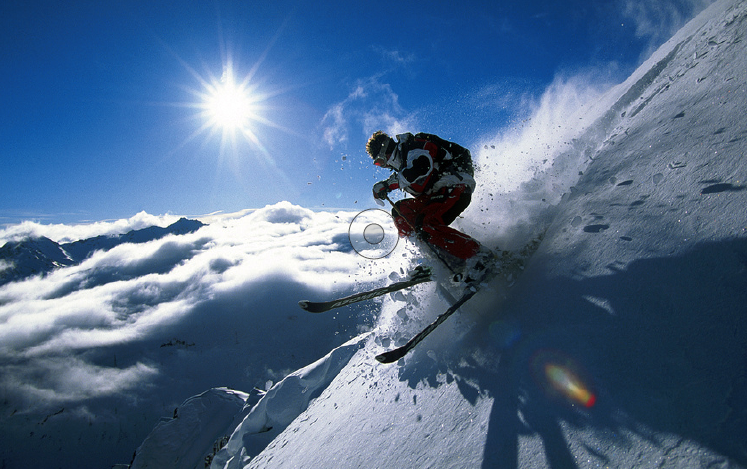
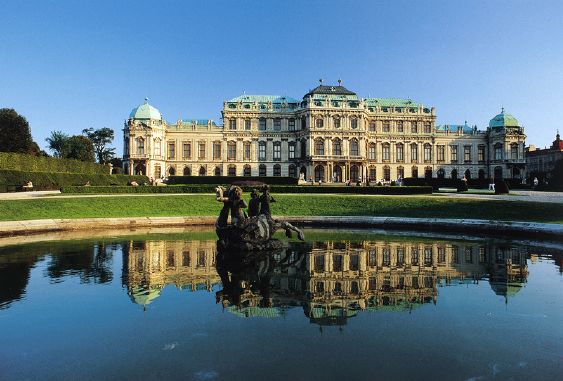
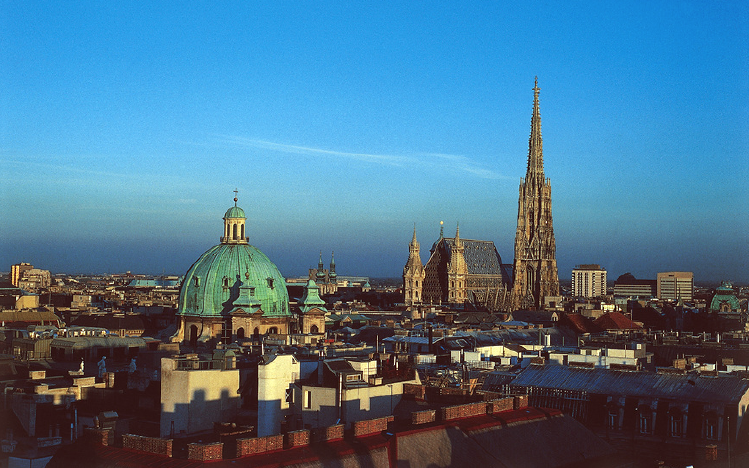
 RSS Feed
RSS Feed
















